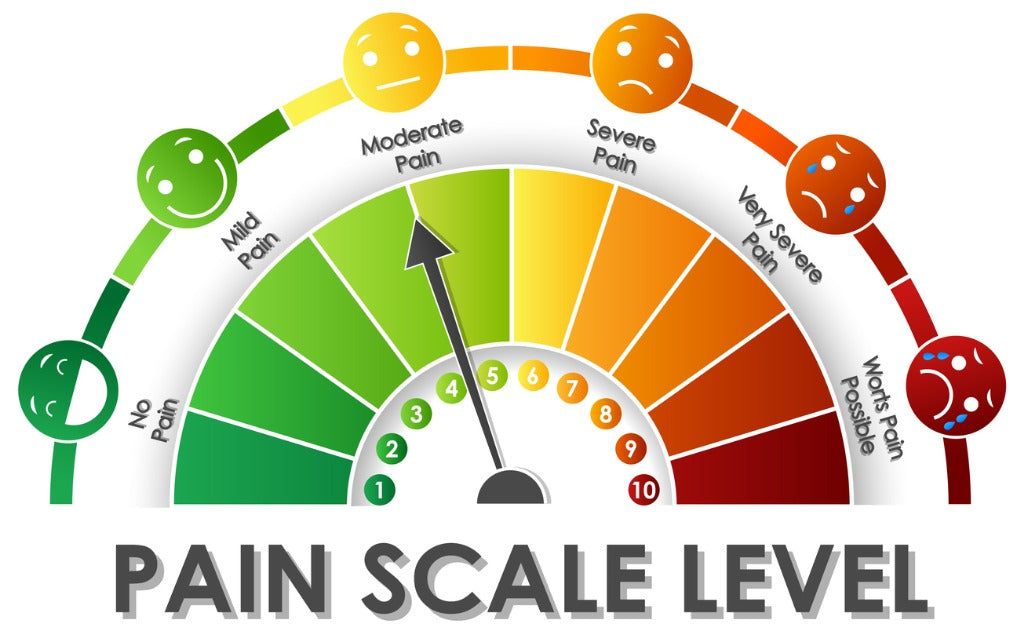The Benefits Of Downsizing At Retirement: Why Less Is More
By Darrell Griffin
The Benefits Of Downsizing At Retirement: Why Less Is More
The concept of downsizing at retirement revolves around the principle that simplifying one's lifestyle and reducing living space can lead to an abundance of benefits, encapsulating the essence of why less truly is more. At its core, downsizing is not merely about moving to a smaller residence; it's a deliberate choice towards a less burdensome and more fulfilling lifestyle. This shift allows retirees to unshackle themselves from the upkeep and financial strain associated with larger properties, redirecting their focus and resources towards activities and experiences that enrich their lives.

Moreover, embracing a minimalist approach by letting go of seldom-used possessions can lead to a profound sense of liberation. It encourages living in the moment and appreciating what truly matters. The psychological uplift from decluttering is matched by the practicality of lower living costs, enabling retirees to allocate their pensions and savings towards pursuits like travel, hobbies, or simply enjoying leisure without financial worry.
Thus, downsizing embodies the transformative power of choosing quality over quantity—where less space and fewer possessions pave the way for greater freedom, comfort, and happiness in retirement.

Simplify Your Life: How Downsizing Can Lead To Financial Freedom
Simplifying your life by downsizing at retirement isn't just about moving to a smaller home; it's a profound step towards achieving financial freedom. This transformative journey begins with the realization that less truly can be more. By opting for a smaller living space, retirees can significantly reduce their monthly expenses, including utilities, maintenance costs, and property taxes. This reduction in fixed expenses is crucial for those on a fixed income, allowing for a more comfortable and stress-free lifestyle.
Moreover, the process of downsizing encourages individuals to declutter and prioritize what's truly valuable in their lives, leading to a simpler and more fulfilling existence. It’s not merely about parting with possessions but rather reassessing priorities and reallocating resources towards experiences and investments that offer long-term happiness and security.

The financial liberation that comes with downsizing extends beyond immediate cash flow improvements. The equity released from selling a larger property can bolster retirement savings or fund lifestyle enhancements such as travel or hobbies. In essence, downsizing at retirement is an empowering step towards simplifying life while securing financial freedom, allowing retirees to fully embrace the joys of their golden years without the burden of excessive possessions or overwhelming property upkeep.
Minimalism And Decluttering: Key Components Of A Stress-Free Retirement
In the journey towards a fulfilling retirement, embracing minimalism and decluttering emerges as a transformative strategy, pivotal for nurturing a stress-free lifestyle. This philosophy of 'less is more' is not merely about physical belongings but extends to simplifying life itself, allowing retirees to focus on what truly matters: relationships, hobbies, and personal well-being.
The act of downsizing possessions can be incredibly liberating. Over the years, individuals accumulate an array of items that often carry more burden than value. By selectively choosing what to keep, sell, or donate, retirees can significantly reduce the clutter that occupies their physical and mental space. This process encourages a thoughtful evaluation of what possessions genuinely contribute to one's happiness and comfort.
Furthermore, minimalism in retirement transcends the tangible; it invites a decluttering of commitments and obligations. Retirees find themselves with the freedom to reassess their schedules and engagements, eliminating those that no longer serve them positively. This deliberate simplification makes room for pursuits that truly enrich their lives—be it leisure activities, travel, or spending time with loved ones—thereby cultivating a serene and unencumbered retirement.

Closer Community Connections: The Social Benefits Of Downsizing In Retirement
As individuals transition into retirement, the decision to downsize not only simplifies their lifestyle but also significantly enhances their social fabric. A move to a smaller home or a retirement community naturally fosters closer community connections, an aspect of downsizing that is often overlooked but immensely beneficial. This tighter-knit living arrangement encourages more frequent interactions and the development of meaningful relationships among neighbors.
Unlike in larger homes where interactions can be sporadic and impersonal, smaller spaces and shared community areas promote regular social engagements.
The communal settings typical of downsized living environments are designed with interaction in mind, whether through organized activities, communal dining areas, or simply shared gardens. Here, retirees find themselves part of a supportive network where socializing is not just an option but a way of life. These connections are invaluable for mental health and emotional well-being, combating the isolation that many fear in retirement.
Furthermore, this shift towards more integrated living allows retirees to share experiences with peers who are at similar life stages. Such environments foster a sense of belonging and community spirit that enriches the retirement experience immeasurably. In essence, by choosing to downsize, retirees inadvertently choose a lifestyle ripe with opportunities for deeper human connection and communal support.
Healthier Living: How Downsizing Can Lead To A Happier, Healthier You
Downsizing at retirement is not merely a financial decision; it's a step towards a healthier and more fulfilling lifestyle. When retirees choose to live in smaller, more manageable spaces, they inadvertently set the stage for a significant improvement in their health and happiness. This transformation occurs as the burden of maintaining a large home is lifted, allowing for more time and energy to be invested in personal well-being.
The act of downsizing often involves decluttering, which can have profound psychological benefits. Letting go of unnecessary possessions can lead to a clearer mind and reduced stress levels, fostering an environment where mental health can flourish. Additionally, with fewer rooms to clean and less property to upkeep, retirees find themselves with increased leisure time to engage in physical activities and hobbies that enhance their physical health.
Moreover, the transition to smaller living spaces encourages social interaction within community settings designed for retirees. These interactions are vital for maintaining mental agility and emotional health, reducing feelings of loneliness and isolation. In essence, downsizing creates an opportunity for retirees to redefine their lifestyle priorities, focusing on what truly contributes to their happiness and well-being—proving that indeed, less is more when it comes to healthier living in retirement.

Time For Travel: Enjoying Retirement With A Maintenance-Free Lifestyle
One of the most liberating aspects of retirement is the newfound freedom to explore, travel, and immerse oneself in diverse cultures and experiences. Downsizing plays a pivotal role in this chapter of life by significantly reducing the burdens of property maintenance and financial strain, thus paving the way for a maintenance-free lifestyle that is ideal for retirees eager to traverse the globe.
When you transition from a larger dwelling to a more manageable living space, you inherently free up resources—both time and money—that were previously allocated to home upkeep. This shift allows retirees to redirect their focus towards fulfilling travel aspirations that may have been deferred due to work commitments or financial constraints. Moreover, the psychological relief that comes from living in a clutter-free, simplified environment can enhance one’s overall enthusiasm for adventure.
Embracing a smaller living space does not equate to downsizing one’s dreams; rather, it magnifies them. With fewer chores tethering them down and more disposable income at their disposal, retirees find themselves in an enviable position: they can spontaneously book that dream trip to Tuscany or embark on an extended cruise without worrying about who will mow the lawn or fix a leaky roof in their absence.
This freedom is the essence of why less truly becomes more during retirement.
Lower Expenses, Higher Savings: The Financial Advantages Of Downsizing At Retirement

Downsizing at retirement presents a unique opportunity to recalibrate one's financial health, leading to a more comfortable and secure lifestyle. The act of moving to a smaller home or reducing living expenses significantly impacts one’s financial landscape, primarily through the reduction of costs associated with larger properties. This includes decreased utility bills, lower property taxes, and minimized maintenance costs. Such savings are not merely incremental but can accumulate to substantial amounts over time, providing retirees with a larger buffer for their savings account.
Moreover, the process of downsizing often involves decluttering and simplifying one's possessions, which can lead to the sale of unnecessary items, further boosting one's financial reserves. This influx of cash can be redirected towards investments or saving accounts that yield interest over time, enhancing financial security during retirement years.
The transition towards a smaller living space also encourages a more streamlined lifestyle that prioritizes experiences over possessions. This shift in mindset can lead to further reductions in frivolous spending, allowing retirees to allocate funds toward activities that enrich their lives rather than maintaining an unsustainable lifestyle. Ultimately, downsizing at retirement embodies the principle that less is indeed more - offering greater financial freedom and flexibility for individuals embarking on this new chapter of life.

Reduced Carbon Footprint: How Downsizing Can Lead To An Environmentally-Friendly Lifestyle
Downsizing at retirement is not merely a step toward financial prudence or easier maintenance but also strides towards a more environmentally-friendly lifestyle, significantly reducing one’s carbon footprint. When individuals opt for smaller living spaces, the direct impact on energy consumption is profound. Smaller homes require less energy for heating and cooling, contributing to lower greenhouse gas emissions. This reduction is vital in the fight against climate change, as residential energy use accounts for a significant portion of total energy consumption worldwide.
Moreover, downsizing often encourages a decluttering process, leading to more mindful consumption habits. Retirees find themselves evaluating what truly adds value to their lives, often parting with excess belongings that contribute to the cycle of buy-use-dispose. This shift not only reduces waste but also diminishes the demand for new goods, further lowering one's environmental impact.
Furthermore, embracing a downsized lifestyle can inspire retirees to adopt other eco-friendly practices such as recycling more diligently or choosing sustainable modes of transportation given their potentially central living locations. Collectively, these changes contribute to a significant decrease in one's carbon footprint, underscoring how downsizing can be an essential step towards fostering an environmentally-friendly retirement life.
Easier Relocation Options: Why Downsizing Makes Moving In Retirement Easier

Downsizing during retirement not only symbolizes a shift towards a simpler lifestyle but also significantly eases the process of relocation. As retirees consider moving to more retirement-friendly locales, smaller homes, or even abroad, the prospect of relocating can seem daunting when faced with the task of moving decades’ worth of possessions. However, downsizing simplifies this process by reducing the volume of belongings to be packed, moved, and unpacked.
This streamlined approach not only makes it physically easier to relocate but also reduces moving costs significantly. Fewer items mean fewer packing materials are needed, less manpower for loading and unloading, and potentially smaller moving trucks or fewer trips required.
Moreover, downsizing encourages retirees to prioritize their possessions, keeping only what is essential or holds sentimental value. This selective process results in a more organized and manageable move. Additionally, it offers an opportunity for a fresh start in a new home that is better suited to their current needs and lifestyle preferences. Ultimately, downsizing before relocation can transform what could have been an overwhelming transition into a manageable and even enjoyable experience.
Enhanced Mental Well-Being: The Emotional Benefits Of Living Simply In Retirement
In the journey of retirement, embracing a simpler lifestyle by downsizing not only lightens the physical load but profoundly enriches mental and emotional well-being. This transition often marks a significant shift from complexity to simplicity, allowing individuals to focus on what truly matters. The decluttering process, although challenging, acts as a metaphorical release of the burdens and responsibilities that have accumulated over the years.
It's akin to shedding layers of stress and expectation, paving the way for a renewed sense of freedom.
This newfound simplicity transcends mere physical space. It fosters an environment where retirees can rekindle passions and explore new interests without the overwhelming pressure of maintaining a larger home or lifestyle. The mental clarity that comes from this less encumbered life is profound. It encourages mindfulness and living in the present, qualities that are essential for emotional contentment.
Moreover, downsizing often leads to closer community ties or stronger family connections as individuals seek more meaningful interactions over material possessions. This sense of belonging and community significantly contributes to emotional resilience and happiness in retirement years, showcasing that indeed, in less there is more.





